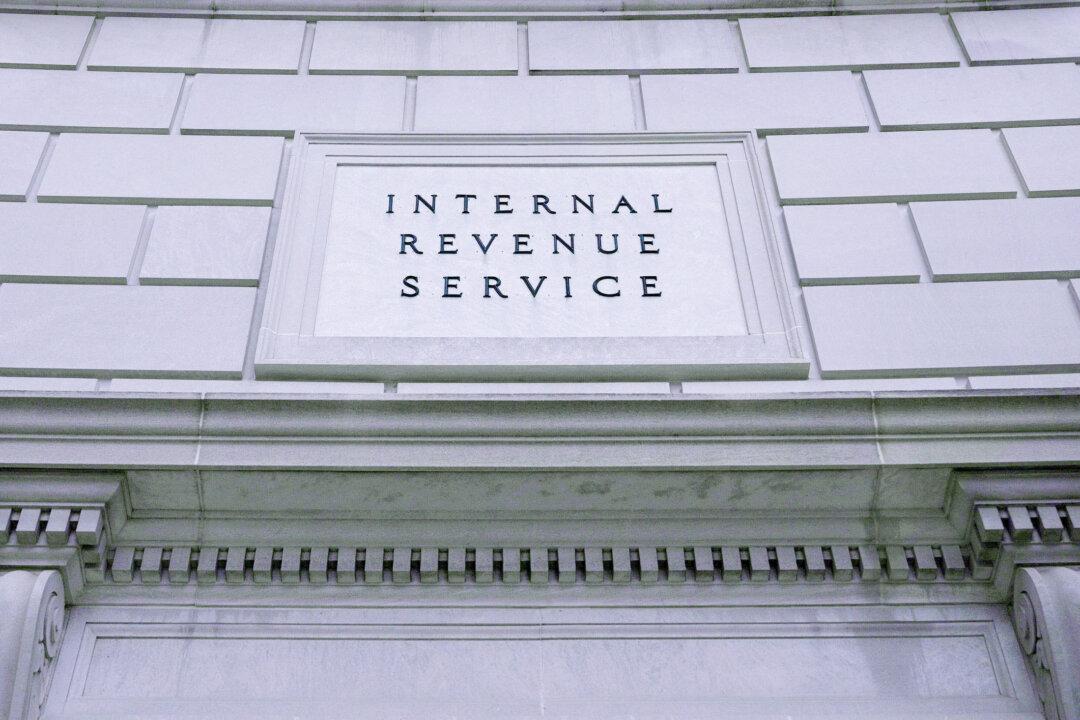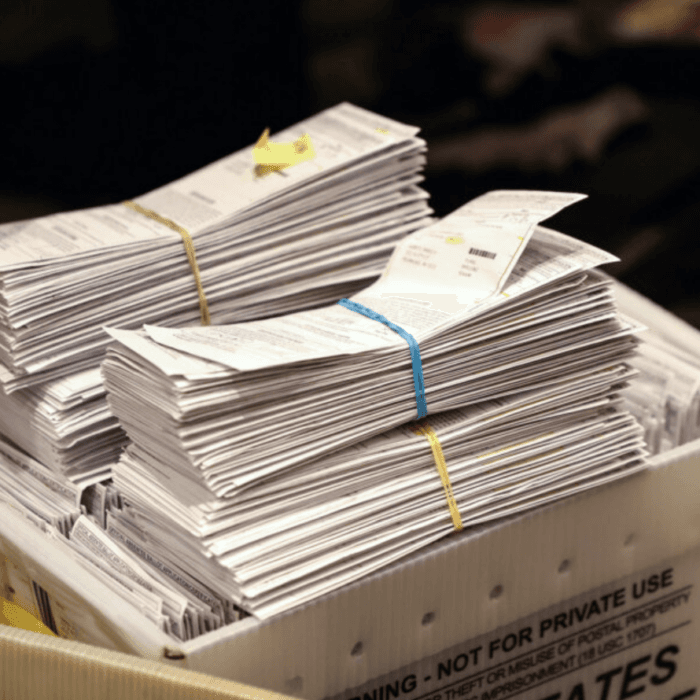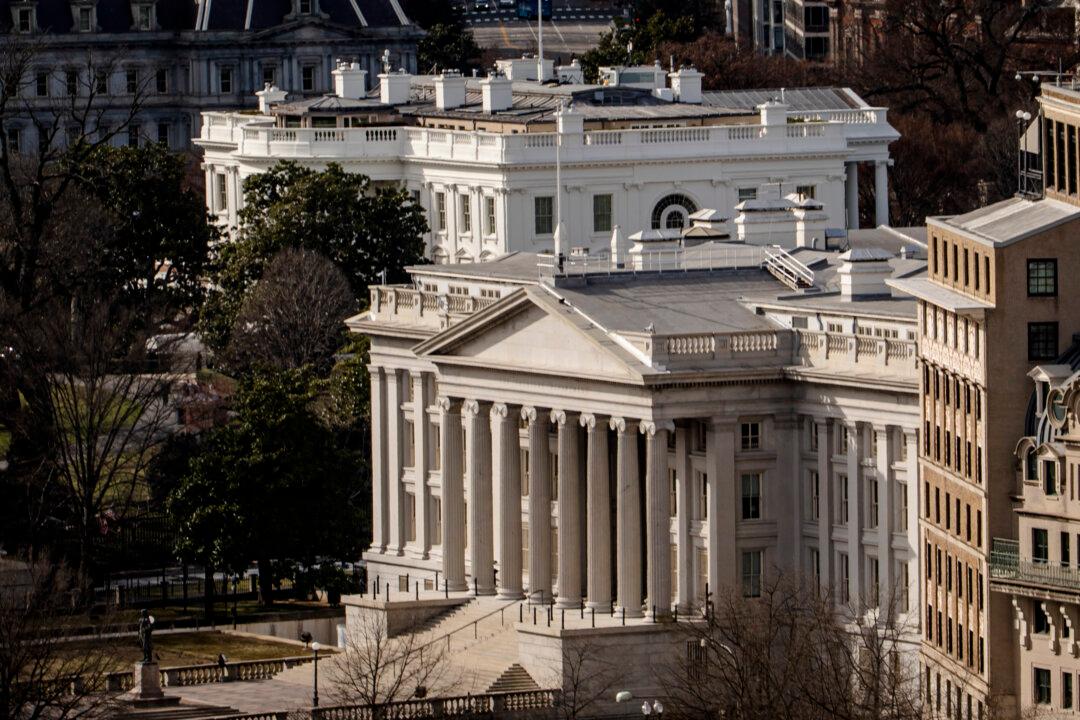Good morning, and welcome to The Epoch Times News Brief for Wednesday, Oct. 2, 2024. I’m Bill Thomas, we have some dramatic stories to share with you right now, and here’s what’s going on.
The IRS is giving ranchers and farmers in multiple states a big break, a judge in Georgia rules on the state’s heartbeat abortion law, and a federal judge in Texas strikes down a key portion of an election reform law.
Also, Hurricane Helene has destroyed entire towns in the western region of North Carolina, and two men will be spending years behind bars for selling the personal data of millions of consumers.
IRS Extends Tax Relief in 41 States
IRS officials say the relief applies to those forced to sell or exchange certain categories of livestock because of the persistent drought conditions. Those who qualify, they say, will now have until the end of their first tax year after the first drought-free year to replace the exchanged or sold livestock.This particular deferral is designed to mitigate the financial burden on farmers and ranchers who had to reduce their herds under involuntary circumstances caused by the drought. Those who have already sold livestock and were facing tax obligations on those sales can now use this extended timeline to replace livestock without facing immediate tax consequences.
The relief is limited to livestock held for draft, dairy, or breeding purposes. Livestock raised for slaughter or held for sporting purposes, as well as poultry, do not qualify for the tax deferral.
Simply put, the extension means that livestock must generally be replaced within four years instead of the usual two years before any capital gains tax is due. The IRS went on to say that it might further extend the replacement period if the drought continues.
So you know, this extension applies to farmers and ranchers across 41 states, the District of Columbia, and U.S. territories, including Guam and the Marshall Islands.
The relief applies to areas that experienced “exceptional, extreme, or severe drought” as determined by the National Drought Mitigation Center between Sept. 1, 2023, and Aug. 31, 2024.
You should know that nearly 45 percent of U.S. rangeland and pastures were rated as being in poor to very poor condition as of Sept. 22 of this year, which is a significant rise from the 19 percent recorded in the early summer.
Judge Declares Georgia ‘Heartbeat’ Abortion Law Unconstitutional
The Living Infants Fairness and Equality (LIFE) Act, signed by Georgia Gov. Brian Kemp in 2019, took effect in 2022 after the U.S. Supreme Court overturned the federal right to abortion.However, in his ruling, Fulton County Superior Court Judge Robert McBurney said Georgia state law gives women the power to control their own bodies, to decide what happens to them and in them, and to reject state interference regarding health care choices.
McBurney’s ruling means Georgia’s abortion law will revert back to a 2012 law that banned the procedure after 22 weeks of pregnancy, at least for the time being, though it could be put on hold pending an appeal.
You may not know this, but fetal cardiac activity can usually be detected after about six weeks of pregnancy. Georgia’s LIFE Act banned abortions after that point and included exceptions for cases involving rape, incest, and medical emergencies.
McBurney also said that the right to have an abortion is not unlimited, indicating the state may step in at the point of viability of the fetus, but he didn’t specify when that is.
A state policy director for the group Susan B. Anthony Pro-Life America criticized the judge’s decision, saying Georgia babies will die and some will feel the pain from the abortion.
Meanwhile, Monica Simpson, the executive director of SisterSong, one of the groups who brought the lawsuit, called the ruling a significant step in the right direction.
One final note. A spokesperson for Georgia Attorney General Chris Carr told The Associated Press that the state intends to continue fighting the case.
Judge Strikes Down Key Part of Texas Election Reform Law
U.S. District Judge Xavier Rodriguez declared that Section 7.04 of Senate Bill 1 (SB 1), which made certain types of ballot harvesting a third-degree felony, violates the First and 14th Amendments of the U.S. Constitution.Supporters say the provision bolsters election integrity, while critics say it amounts to “voter suppression.”
You should know that the provision, known as the canvassing restriction, made it a third-degree felony for individuals to earn “compensation or other benefit” by conducting in-person interactions to assist voters in filling out or submitting mail-in ballots.
This restriction applied specifically to assistance provided with the intent to deliver votes for a particular candidate or measure. It criminalizes activities including door-to-door canvassing and providing voting assistance at public events where mail-in ballots are present, if any form of compensation is involved.
Rodriguez went further and permanently enjoined the Texas attorney general from initiating or pursuing investigations related to potential violations of the canvassing restriction.
Texas Attorney General Ken Paxton criticized the ruling, saying the bill increases safeguards in order to prevent ballot harvesting and adds other protections that will ensure free and fair elections. He says his office promises to appeal it.
So you know, the League of United Latin American Citizens praised the judge’s ruling, calling it a victory for voter rights in Texas, particularly minority communities.
NC Communities ‘Wiped Off the Map’
North Carolina Gov. Roy Cooper says that “hundreds of roads” were destroyed and entire communities were “wiped off the map” last week and over the weekend.Cooper is asking people not to come to the state right now, unless you are on a specific mission to help rescue efforts. Further, the North Carolina Department of Transportation put out a statement on X saying that “all roads in Western NC should be considered closed to all non-emergency travel.”
By the way, the National Guard has flown in 1,000 tons of food and water to remote areas by plane and helicopter.
Meanwhile, Asheville Mayor Esther Manheimer, whose city was hit very hard by Helene, described the aftermath as a “post-apocalyptic scene.” She told reporters that the city is “seeing just piles of people’s houses that were destroyed. Buildings that were destroyed. Cars overturned,“ and that ”the power lines look like spaghetti.”
Tragically, the storm has killed more than 100 people across North Carolina, South Carolina, Georgia, Florida, Tennessee, and Virginia, and the death toll is expected to rise once rescue teams reach isolated towns and telecommunications are restored.
As of yesterday morning, the tracking website PowerOutage.us says that nearly 1 million people were without power in South Carolina and North Carolina. More than 450,000 were without power in Georgia, 73,000 lacked power in Virginia, and 64,000 had no power in parts of Florida.
In total, the storm knocked out service to about 5.5 million customers.
One final note. President Joe Biden is in North Carolina today, and Georgia and Florida soon after. He may also ask Congress to return to Washington for a special session to pass supplemental aid funding.
2 Sentenced Over Data Scheme
Robert Reger, 57, of Boulder, Colorado, was sentenced to 10 years in prison, while 64-year-old David Lytle of Leawood, Kansas, received a four-year sentence.Both men were convicted in the U.S. District Court for the District of Colorado of conspiracy to commit mail and wire fraud, along with multiple counts of mail and wire fraud, following a two-week trial.
Their scheme took place over a decade, and Reger and Lytle, both former employees of Epsilon Data Management LLC, were found to have sold lists of consumers’ information to fraudsters.
Those lists, generated through Epsilon’s data algorithms from a database of 100 million U.S. households, were designed to predict which consumers were most likely to respond to fraudulent mailings.
The Department of Justice (DOJ) says those mailings falsely promised large cash prizes or personalized astrological services, and targeted the elderly and other vulnerable individuals.
The DOJ said that evidence presented at trial showed that one client of the defendants defrauded more than 218,000 victims, which resulted in nearly $24 million in losses. Victims in court testified about the numerous scam letters they received, with some people targeted more than 20 times.
So you know, the investigation into Reger’s and Lytle’s actions was led by the U.S. Postal Inspection Service as part of its broader efforts to protect vulnerable populations from fraud.
The DOJ went on to say that their sentences should make it clear to everyone that those who illegally use the personal information of American citizens to facilitate fraud will face serious consequences.
And now, it looks like our time is just about up for today, so we’re going to call it a wrap for the Wednesday edition of The Epoch Times News Brief.
*(Don’t forget the News Brief Motto): We’re portable, affordable, and always on-demand.
And finally, as we do each and every day on this program, we wrap everything up with a very notable quote, and this one comes to us from the fabulous writer C.S. Lewis, who said: “You are never too old to set another goal or to dream a new dream.”
For all of us here at The Epoch Times News Brief, I’m Bill Thomas.
The Epoch Times News Brief program was written today by Sharon Reardon.
Thank you for making us your one-stop source for a concise, accurate, and unbiased daily synopsis of many of the news stories you need to know about.
Enjoy the remainder of your day, and we’ll see you right back here next time for another edition of the Epoch Times News Brief. For now, let’s all continue to watch out for one another and have an absolutely superb day today. Bye for now.






